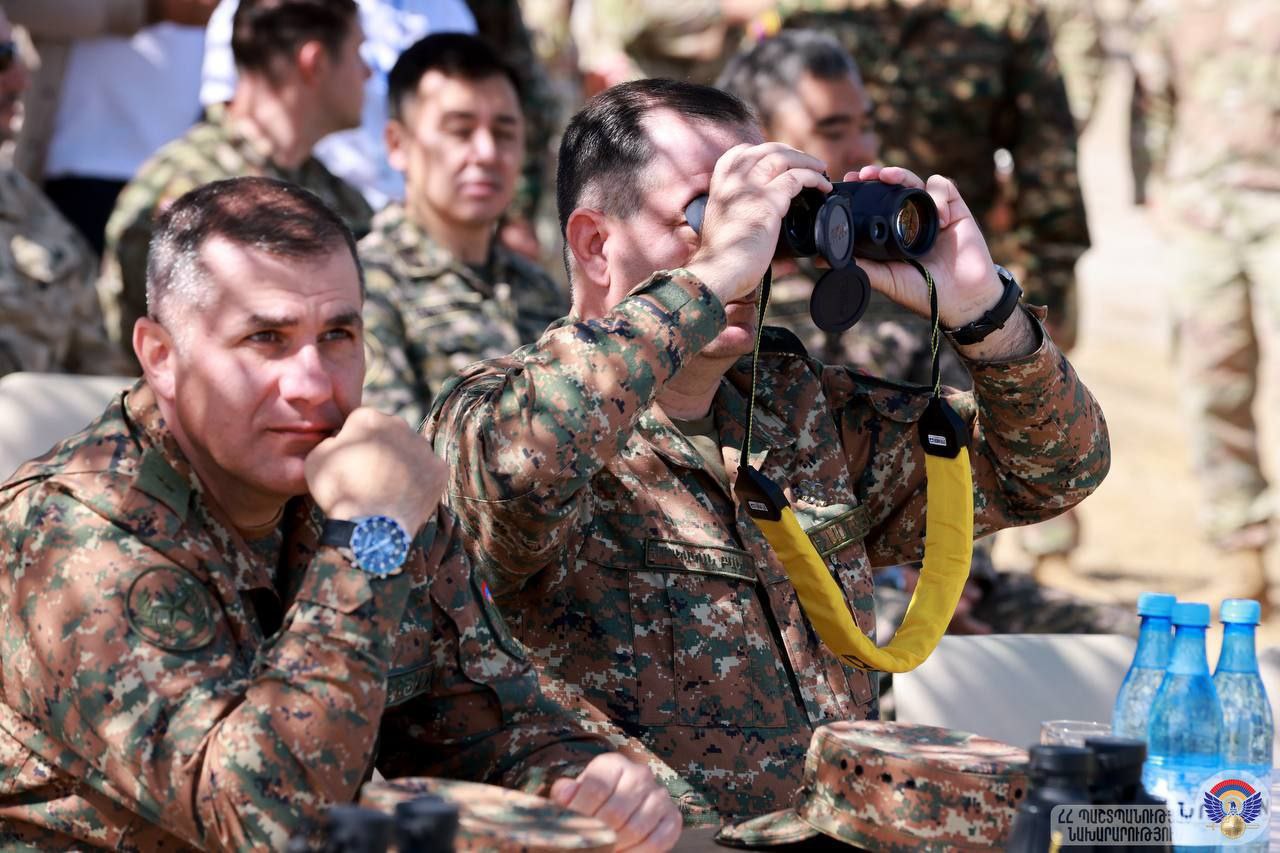Armenia's Military Generals Need More Competent Individuals Running Country's Finances

Amid debates sparked by Finance Minister Vahe Hovhannisyan's announcement of a reduced military expenditure share in the 2026 budget—despite an unsigned peace treaty with Azerbaijan and ongoing territorial occupations—Armenia's defense challenges are under scrutiny. The 2025 defense budget of approximately $1.7 billion, a 20% increase, is significant, yet without air superiority, this investment risks being ineffective, leaving ground forces vulnerable. Military generals emphasize the need for competent, integrity-driven financial leadership to prioritize integrated air capabilities, learning from past government failures in supporting units and infrastructure. As Azerbaijan bolsters its air power with 40 JF-17 Thunder jets, Armenia's modest fleet of four Su-30SM fighters highlights the urgent need for strategic budgeting to strengthen the military industry and its nascent startup hub.
Integrity in Financial Leadership: The Foundation for Effective Defense
Integrity is critical in managing Armenia's finances, particularly when national security is at stake. Generals rely on consistent, transparent budgeting to equip forces adequately, but past lapses—such as delayed infrastructure upgrades and inadequate logistical support during conflicts—have undermined confidence. The 2020 Nagorno-Karabakh War demonstrated this starkly: without air superiority, ground units suffered heavy losses, becoming easy targets for Azerbaijani drones and strikes. Competent leaders with unwavering integrity would ensure efficient, corruption-free allocation of funds to build a holistic defense posture.
Hovhannisyan's optimism about an unsigned peace agreement boosting investment appeal contrasts with the reality of a reduced military spending share in 2026, potentially keeping allocations flat or lower amid the occupation of over 200 square kilometers. This timing raises questions about the government's commitment, as generals argue that without robust financial backing, even the $1.7 billion for 2025 will fail to deliver if air capabilities remain underdeveloped.
The $1.7 Billion Gamble: Ineffectiveness Without Air Superiority
A key lesson from the 2020 war and earlier clashes is that ground investments are futile without air superiority. Advanced ground units are commendable but become costly liabilities when exposed to unchallenged aerial threats. Azerbaijan's air dominance during Nagorno-Karabakh enabled systematic dismantling of Armenian defenses, underscoring how air power supports ground operations while denying the enemy the same advantage.
Armenia's air force, limited to four Su-30SM fighters, struggles with stalled acquisition plans amid diversification efforts toward India and France. Meanwhile, Azerbaijan has secured 40 JF-17 Block III jets in a $4.6 billion deal, significantly outpacing Armenia's capabilities. Without integrated air superiority—encompassing fighters, drones, and anti-air systems—the $1.7 billion risks being wasted on ineffective deployments, repeating past mistakes where ground forces lacked aerial cover.
Revitalizing the Military Startup Hub for Long-Term Resilience
Armenia's military startup ecosystem offers a path to innovation but requires significant improvement through competent financial oversight. Initiatives like AI-driven defenses and unmanned systems could enhance air capabilities, yet limited funding and brain drain hinder progress. Integrity-focused leaders could attract investments to scale these efforts, integrating startups into a comprehensive strategy that supports air superiority and ground protection.
Learning the Lesson: Time for Strategic Change
Armenia must apply the hard-learned lesson: a $1.7 billion budget is only as valuable as its application toward achieving complete air superiority, enabling ground units to thrive rather than merely survive. With generals calling for competent, integrity-driven financial managers, the government faces a critical choice—rely on an unsigned peace agreement or invest wisely in defense. Ignoring this risks perpetuating vulnerabilities; embracing it could secure sovereignty.
